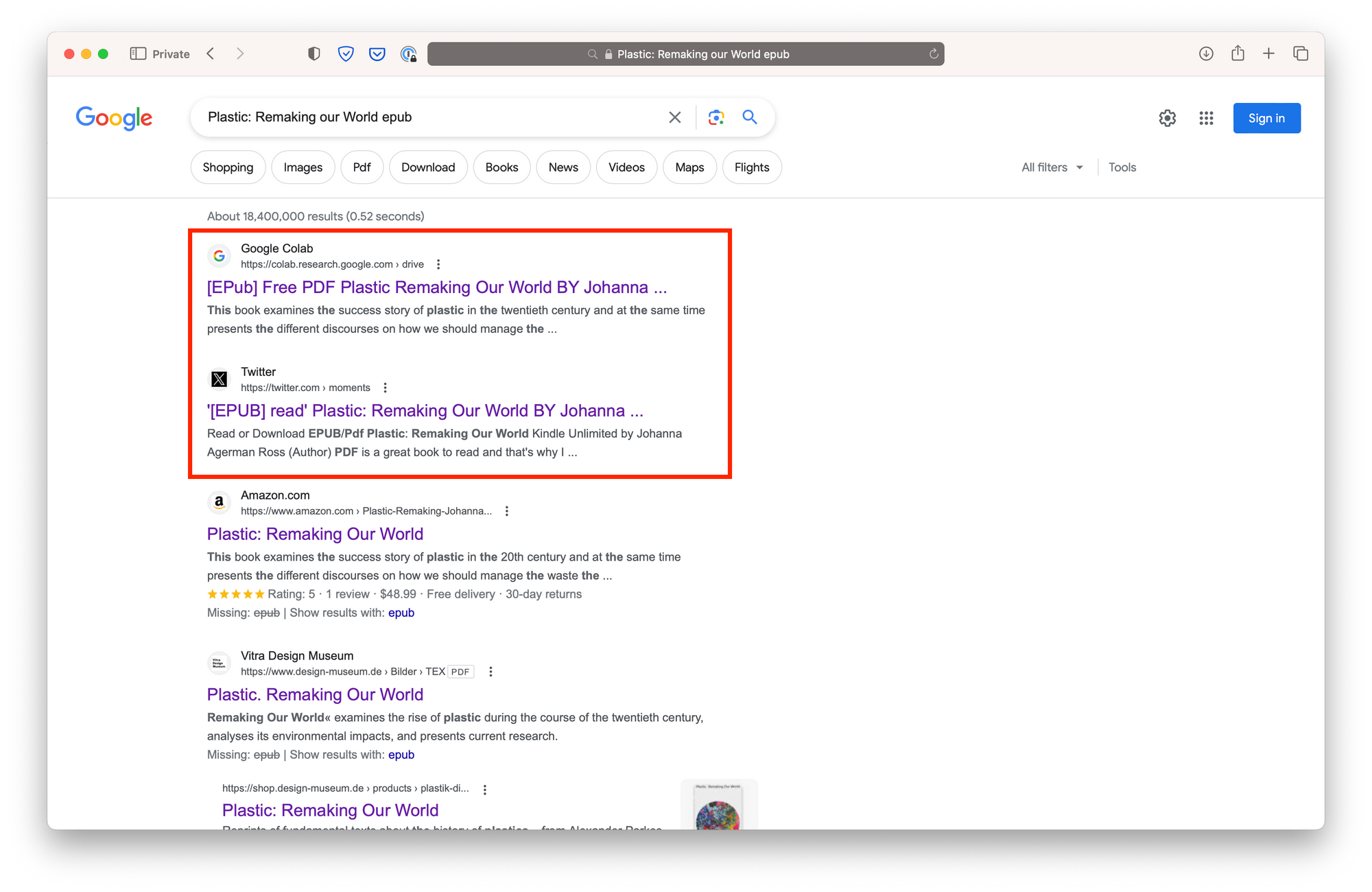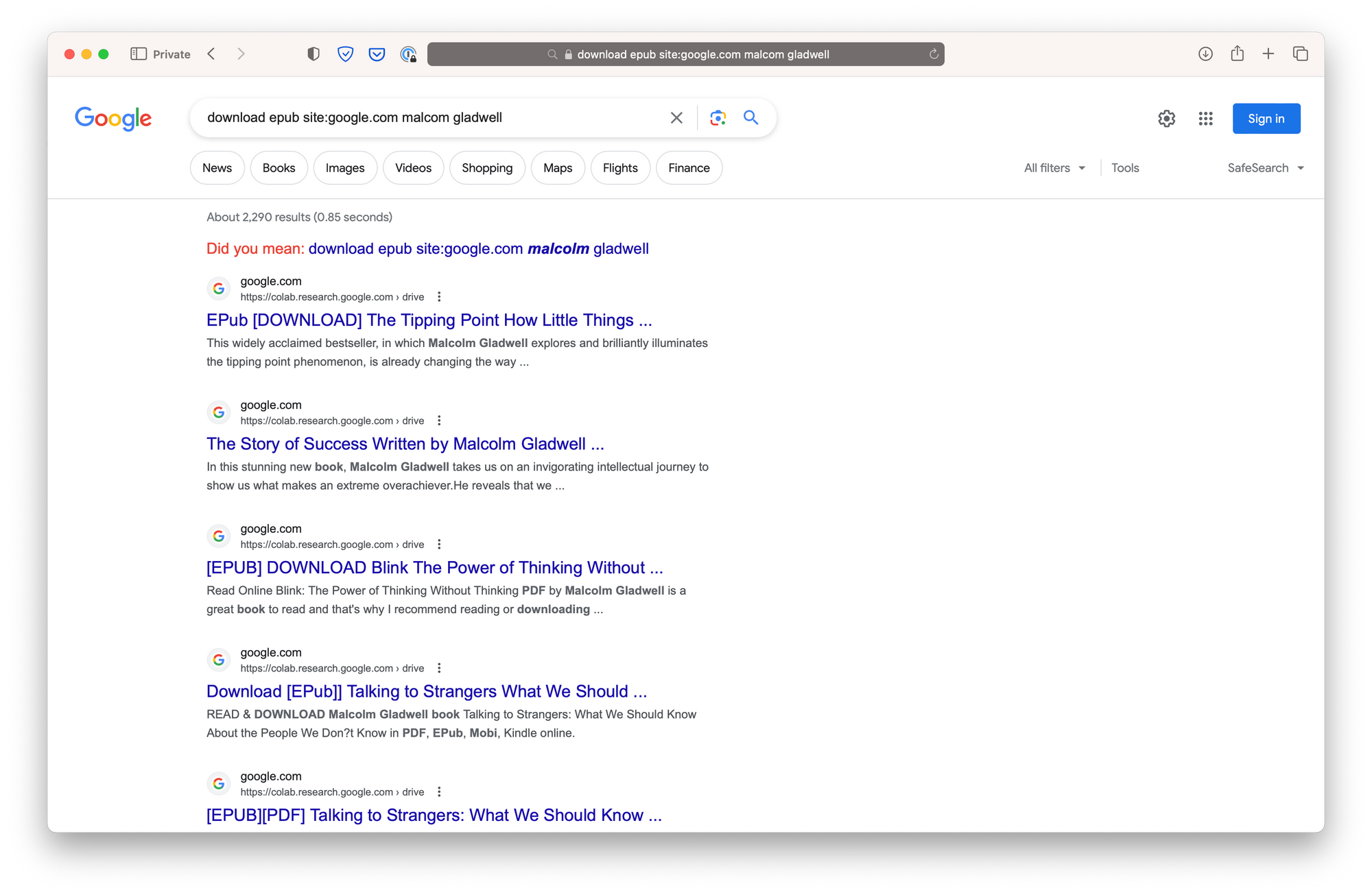Boondoggles All The Way Down
Scams thrive in the open on the internet. Today, while searching for the ebook "Plastic: Remaking our World" I found the top two results were from scammy looking sites.

A search for "download epub site:google.com" reveals scant efforts to halt the free advertising of scammy content hosted on Google's platforms. For example, querying popular authors like Malcolm Gladwell shows countless scammy looking schemes hosted on Google Colab notebooks. Though it's unlikely intentional teams at Google that let this thrive are inadvertently boosting service usage numbers and incorporating those stats into future headcount and resource requests. 📈

Ending these types of scams doesn't appear to be a complex task. However, the general attitude seems to be one of indifference. My rough, unscientific analysis suggests that a significant majority of public Google Colab sites might be hosting links to scams. Which isn't surprising since most folks probably wouldn't make their colab notebook public.
To be fair, I don't want to single out Google here; it's just my go-to search engine, and where I encounter this nonsense. Microsoft has a similar problem if you search Bing for "download epub malcom gladwell site:office.com"

The broader issue of piracy, scams, and the internet needs addressing, but I'll delve into that in future posts. I'll leave it at this: if we want nice things to thrive, we need platforms to put more effort into putting an end to showing us blatant scams.